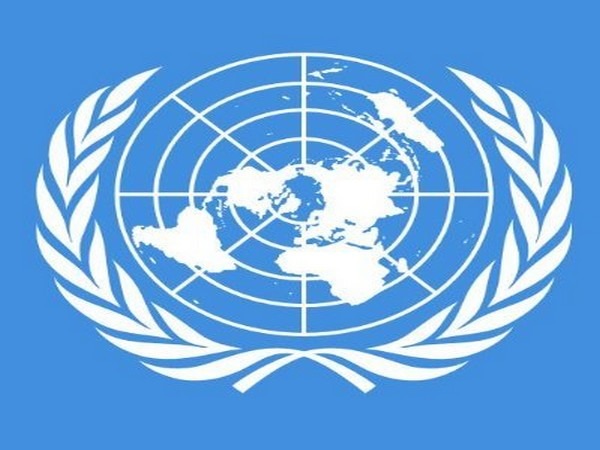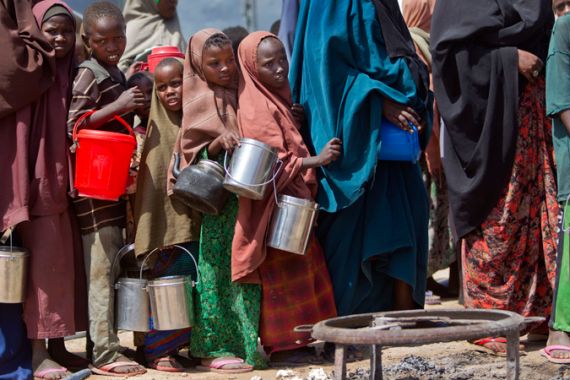The United Nations World Food Program Severely Challenged By Economic Recession, Climate Change And Funding Crises
The world is currently grappling with two formidable challenges - the pressing issue of climate change and the slowing global economy, thus triggering far-reaching consequences on various sectors and food production is one of the critical areas significantly impacted. As economies struggle and climate change disrupts weather patterns and ecosystems, the ability to ensure food security for the growing global population becomes increasingly tricky. The current double-whammy crisis has seriously affected and constrained the United Nations in addressing this complex issue.

The World Food Program (WFP) of the United Nations is facing an unprecedented funding crisis, leading to severe cuts in food, cash payments, and assistance to millions of people in various countries.
As humanitarian needs continue to surge due to the impact of COVID-19 and ongoing conflicts, the WFP has witnessed a drastic decline of approximately 50% in donations. The funding shortfall is occurring at a time when acute hunger is reaching record levels worldwide, worsening the challenges faced by vulnerable populations.
Carl Skau, the deputy executive director of the World Food Program, expressed grave concern over the situation during a recent news conference.
He revealed that 38 out of the 86 countries where the WFP operates have either experienced or are planning to implement cuts in assistance. Distressed regions, such as Afghanistan, Syria, Yemen, and West Africa, are among those directly affected by these reductions in aid.

Funding Crises At United Nations
To address the pressing needs, the WFP requires a substantial operating budget of $20 billion, allowing them to deliver aid to all those in desperate need.
However, the organization is currently aiming for a much lower funding target, between $10 billion and $14 billion, which represents the level of support received in previous years.
Global Hunger Crises
The severity of the funding crisis and the resulting cuts in assistance stresses the urgency of the situation; with acute hunger levels at an all-time high, millions of vulnerable individuals are facing even more incredible hardships due to the limitations imposed by the financial shortfall.
Skau, a prominent advocate for humanitarian causes, is raising an urgent appeal to global leaders amidst an ongoing humanitarian crisis and has stressed that immediate and sustained action is necessary to address this critical issue and ensure that life-saving assistance reaches those who most need it.
Highlighting the limitations of ration cuts as a viable solution, Skau stresses the need for adopting more effective approaches to tackle the root causes of the crisis – prioritizing humanitarian funding and investing in long-term solutions that address conflicts, poverty, development, and other underlying issues is significant to prevent the escalation of future humanitarian emergencies.

A Call for Comprehensive Humanitarian Approaches
Skau firmly contends that ration cuts are inadequate in addressing the complexities of the current humanitarian crisis. While they might offer temporary relief, such measures fail to tackle the deeper issues faced by vulnerable communities.
In fact, ration cuts may deepen suffering and push already distressed populations into even more dire circumstances. A more comprehensive and proactive strategy is required to alleviate the current crisis and avert similar disasters in the future.
World leaders are being earnestly urged to focus on bolstering humanitarian funding. Sufficient financial resources are vital in mounting effective responses to crises and ensuring timely aid reaches those in need.
Therefore, by enhancing funding for humanitarian efforts, aid organizations and relief agencies can better address immediate needs, provide essential support, and facilitate the recovery of affected communities.
Skau emphasizes the paramount importance of investing in sustainable, long-term solutions that target the underlying causes of the crisis. Conflicts, poverty, and development challenges are interconnected factors contributing to the cycle of vulnerability and instability.
Dedicated resources must be allocated to sustainable development programs, conflict resolution initiatives, and poverty eradication strategies to break this cycle.
The call for proactive measures does not diminish the significance of immediate crisis response. Swift action remains crucial in saving lives and alleviating immediate suffering. However, neglecting the root causes of the crisis would be a missed opportunity to prevent future emergencies.

The Intersection of Economic Recession and Climate Change
Climate Change’s Impact on Food Production
Climate change is wreaking havoc on the delicate balance of ecosystems that support agriculture. Extreme weather events such as droughts, floods, and heat waves have become more frequent and intense, leading to crop failures, livestock losses, and disrupted food supply chains. Rising temperatures and changing precipitation patterns have also contributed to the spreading of pests and diseases, further jeopardizing agricultural productivity.
In addition to directly impacting crops and livestock, climate change is also affecting the availability and quality of natural resources critical for food production. Water scarcity has become a severe concern in many regions, making irrigation increasingly challenging. Similarly, climate-induced changes in soil fertility and composition have necessitated adaptive measures and sustainable agricultural practices to maintain long-term food security.
Economic Recession’s Impact on Food Production
The economic recession that has currently engulfed numerous nations poses substantial challenges to the agricultural sector.
A decline in income levels and rising inflation have reduced consumer spending add to the mix the rising unemployment rates, thus further leading to careful spending and demand for agricultural products.

Constraints Faced by the United Nations
The United Nations plays a vital role in addressing global challenges, including food security. However, the concurrent crises of economic recession and climate change place significant constraints on the organization’s efforts to combat food production challenges effectively.
Resource Constraints
The economic downturn has put immense pressure on governments to allocate funds for immediate relief measures, reducing the financial resources available for long-term development projects and humanitarian assistance. This has hampered the United Nation’s ability to provide sufficient aid and support to vulnerable communities facing food insecurity.
Coordination Challenges
The complexity of the food production issue, heightened by the intertwining crises, calls for coordinated efforts from various stakeholders, including governments, non-governmental organizations, and international agencies. However, the urgency to address multiple concerns simultaneously often hinders effective coordination, leading to fragmented approaches that may not yield the desired outcomes.
Global Inequity
Economic recession and climate change may disproportionately impact developing countries that are highly dependent on agriculture. These countries often lack the financial capacity and technological advancements to mitigate the effects of the crises effectively. As a result, food production disparities between nations widen, exacerbating global inequity and leaving vulnerable populations at greater risk of food insecurity.
The Last Bit, The current convergence of economic recession and climate change presents significant challenges for food production, affecting millions of people worldwide. As economies struggle and climate-related disasters intensify, ensuring food security becomes an increasingly complex task.
The United Nations faces multiple constraints in addressing this issue comprehensively. However, through collaborative efforts, global partnerships, and targeted interventions, the international community can work towards building resilient food systems, mitigating the impact of crises, and fostering sustainable practices, thus protecting the world’s most vulnerable populations.




